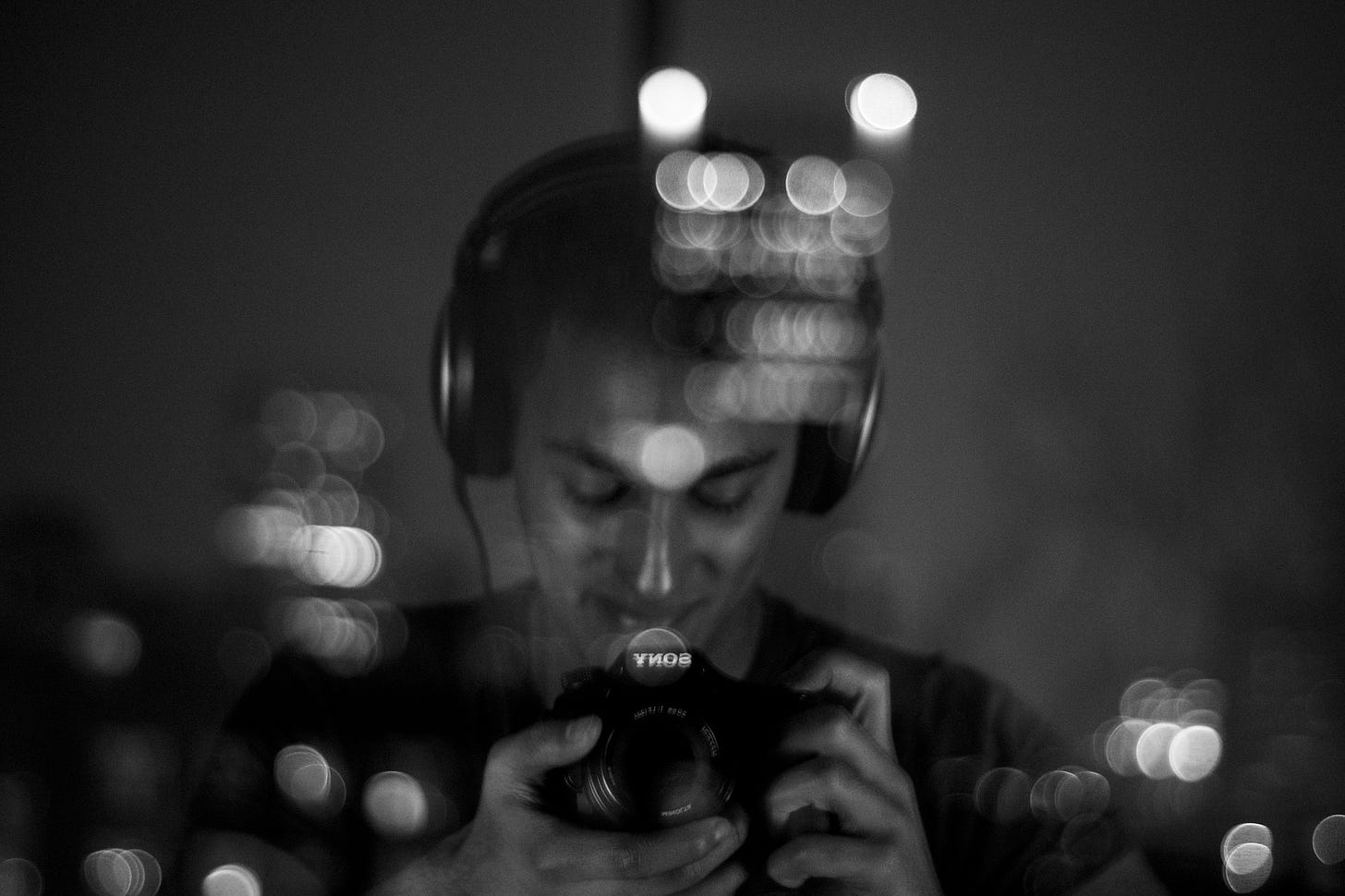Looking in the musical mirror
What I see is not what I hear
My music confuses me.
Based on who I believe myself to be, it doesn’t sound like I think it should.
If we were standing side by side in front of a mirror that could show us our mental and emotional insides, these are the things I might point out to you:
Just behind my nose is my organ for sniffing out problems and negativity. It’s pretty overdeveloped. I tell myself that’s because I like understanding and solving problems, but I’m not so sure.
That growth over there is my pessimism about the future of humans (our greed and our technology have outstripped our caveman-era hardware’s ability to apply wisdom and empathy), though I’m quite hopeful about the resilience of life in general.
Those transparent lenses hugging my vitreous humor lead me to expect (and prepare for) things to go wrong.
They also lead to low expectations of other people - both in their capacity for generosity and in their capabilities.
Those glasses (lenses AND glasses? I know I know; my eyesight is pretty bad) give me a glass half empty perspective - or at the very least a “this glass is twice as large as it needs to be to contain the current volume of liquid” point of view (a likely product of being raised by an engineer and trained as one!)
Those weights around my ankles are because I think of myself as a steady, measured, serious, realistic person.
To get more musical, my favorite composers are those that either express this kind of embattled, world-weary/wise point of view (Mahler, Myaskovsky, Rachmaninov, Shostakovich, Vaughan-Williams)1 or seek to transcend or provide an escape from it (Bruckner, Prokofiev) but not usually composers writing music that fundamentally challenges or affirms a different perspective.
What kind of music do you imagine might emerge from this blinkered, admittedly somewhat unfair2 point of view?
Part of me is embarrassed by what comes out. For how thoughtful and reasonable a person I think myself to be, my music doesn’t seem nearly complex or wise or dark enough.
(^a mock-up of my piece for symphony orchestra …a slightly greener thing…)
Like, where is there room for this kind of tenderness in my above-described worldview?
(^the South Sound Saxophone Ensemble performing movement 3 of Morning Comes Always)
Or this kind of joy?
(^the Oregon Saxophone Ensemble performing Breathe, Set, Play)
These are some of my favorite moments in my music. Some of other people’s favorite moments in my music, too. Despite the incongruences between who I think myself to be and this music, part of me also feels my music very deeply. And I think that’s how I know it is right.
This seeming disconnect is still a head-scratcher for me. Maybe I’m writing music for myself, to balance out my opposite-of-rose-tinted glasses, to repay the cosmic/karmic debt I’ve accrued moving through the world and interacting with others often as a raincloud.
For me, this is a reminder not to be afraid or ashamed of what comes out; be curious about it. It might be medicine for you. It might be medicine for someone else.
As I was wrapping this entry up, a thought in perfect dialogue with mine serendipitously landed in my inbox, from fellow composer Jordan Ali over at Letters from a Composer:
We are called instead to stand firm on the soil and pull down [from the realm of unreality] the positive emotions so that they can take form in concrete reality. These forms are expressions of the self: art, relationships, and community.
This is why hope is and must be the foundation for those emotions which allow us to transcend ourselves. Hope is about our attitude, our philosophical orientation towards the unknown. On the spectrum of anticipation, hope is on the other side of rigid expectation. Hope is an embodiment of openness.
When I imagine an open-hearted society, one where creativity and elation are commonplace, I imagine the individual people that make it up, that feel sustained by what they do, that live within a set of values which enable them to thrive.
There are many exceptions to these rules, but this is what these composers’ work embodies to me.
For example, just about everyone close to me regularly demonstrates a capacity for intelligence beyond mine, generosity beyond mine - it’s just not what I’m looking at or appreciating frequently enough…




I appreciate this reflection so much… It’s nothing short of incredible to think that the music we write, that comes out of us, is going to be interpreted in a completely different way by others. In a slightly greener thing, for example, I hear so much complexity and depth, and I know a performer could as well. How the melody yearns on that seventh scale degree, how it blooms in the second phrase and becomes something else. I think the tenderness in the worldview you outlined does come across in the compassion you offer yourself (and by extension others) through this writing. Reminds me that half of the creative’s battle is self-belief in the goodness of what we do. (I was also raised by an engineer, by the way!)